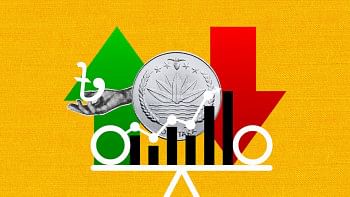Meet the salaryman in chief
Newsweek: Your "Global Korea" vision has drawn keen interest at home and abroad. Why are you pursing globalisation when it is under challenge in so many parts of the world?
Lee: Globalisation is a reality. Advanced nations benefit from it, while some developing countries are hurt by it. Korea has a small land mass, a large population and few resources. But we achieved development through globalisation, (so) Korea wants to continue active globalisation. As the world's 11th largest economy, we will also try to meet our responsibilities in the international community.
But in Korea, some are worried about globalisation's downsides. Are Koreans ready for it?
The majority of the people think globalisation is unavoidable and helps the national interest. But farmers, especially dairy farmers, resist. The government (must) persuade them that their lives will improve.
During your campaign, you promised big reform. What will South Korea look like in five years?
With the looming world financial crisis and high oil and raw-material prices, things are difficult. We will try to recover our national competitiveness. Deregulation will be pursued to meet global standards. After five years, our society will show the face of an advanced first-rate country. Currently, we are advanced in some areas but not in others. But in five years, Korea will become a mature country that can work with the international community.
Some draw a parallel between you and French President Nicolas Sarkozy because both of you are for globalisation and have pro-American attitudes.
During the election, I looked at Sarkozy's platforms. I found a lot of similarities (to my own): (in) reforming the public sector, improving relations between business and labour and changing social customs. But I wouldn't say that he is pro-American per se. Rather, the relationship between France and the US has not been very good in the past, and President Sarkozy is trying to improve it and bring it back to normal because he considers that to be in the interest of France. I will also work toward improving the alliance with the US But we need a new relationship suitable for a new era.
Koreans have mixed views of the United States. What would be the ideal relationship?
We have a long history between our countries. During and after the Korean War, the US led the UN efforts to defend (us) against communist aggression, and we were very much affected by US liberal democracy and market economics. That is how we achieved our development. In the beginning, Korea received unilateral help from the US in both security and economic matters. But now we need a future-oriented relationship.
How have Korean views toward the United States changed?
Five years ago, the establishment (felt) positively (toward) the US but young people who didn't experience the Korean War or past relations were not that favourable. But I detect changes. The young generation's view is gradually moving from negative to positive. If we can upgrade the alliance, all generations will share a common vision.
You said that inter-Korean relations can't improve unless the North gives up its nuclear weapons. Will the relationship now stagnate?
There shouldn't be any nuclear weapons on the Korean Peninsula. The South and North should seek joint prosperity while maintaining peace. The North should also become independent economically. We cannot seek that kind of relationship, and (ultimately) unification, if the North keeps its nuclear weapons.
Can joint economic projects continue while the nuclear talks are deadlocked?
Real expansion will be difficult, and the number of small and medium-size companies investing there will not increase significantly.
Under what conditions would you meet Kim Jong Il?
The leaders of the two Koreas should think about how to improve the lives of their 70 million people. If we (could) open up our minds, sit down and discuss these matters heart to heart, a summit (would be) helpful. I will not have a formal summit just for the sake of domestic politics.
You won the election by a big margin. Are you burdened with high expectations?
I am. But my focus is to change Korea's economic structure for its long-term advancement, not to pursue certain short-term policies based on populism. I also plan to ask people for their hard work, while explaining the difficulties of the international economic environment.

 For all latest news, follow The Daily Star's Google News channel.
For all latest news, follow The Daily Star's Google News channel. 



Comments